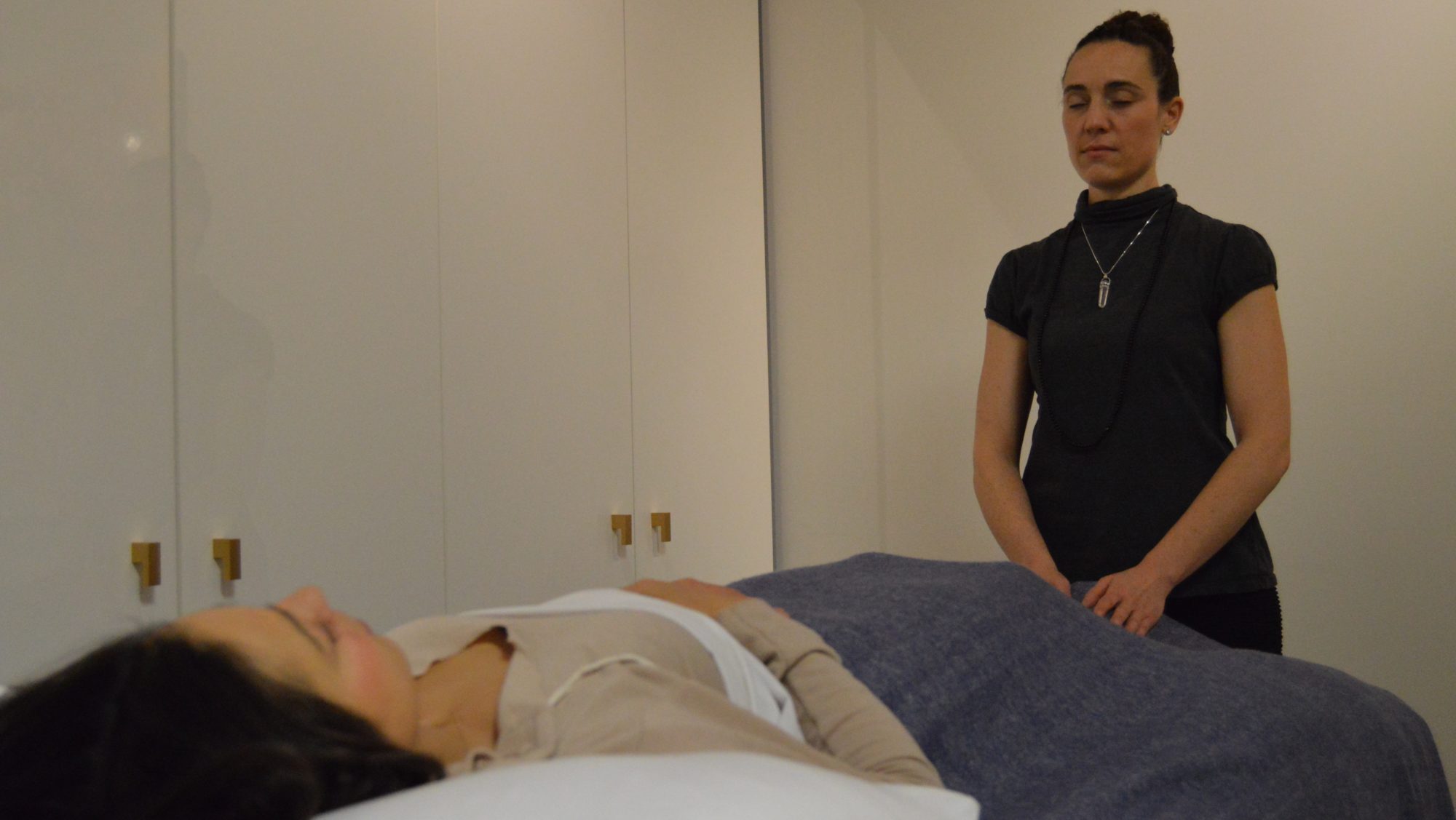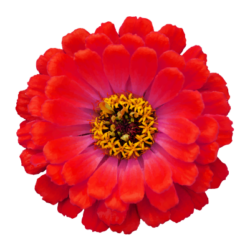“Out beyond ideas of wrongdoing
and rightdoing there is a field.
I’ll meet you there.”
– Rumi
Traditionally, Reiki has been translated to mean “spiritually guided life force energy”. This is based on the combination of the Japanese words ‘rei’ and ‘ki’. ‘Rei’ has been said to mean Spiritual Wisdom, and ‘ki’, life force energy, also spelled ‘qi’, and pronounced “chee”. After more than 2 decades of Reiki exploration, I’ve settled on a definition that is equally enigmatic, offered to me by one of my Reiki Level 2/3 teachers, my Reiki business partner, and one of my true soul mates, Susanne. Susanne studied Reiki in Japan, the birthplace of the practice. I was curious when she told me that the word Reiki doesn’t translate sensibly in Japanese, but that the word ‘rei’ can mean mysterious, ethereal, transcendental or sacred, and the word ‘ki’ can mean atmosphere. Sacred Atmosphere. How beautiful. I embrace and attest to that wholly: Reiki is the creation and experience of Sacred Atmosphere. A sacred space within which we receive the invitation and the opportunity to connect with our true essence – our intuition – our inner Self, detached from concept, idea and judgment. Within this space there is peace and acceptance, and therefore healing.
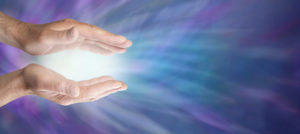 In practice, Reiki involves the placing of hands on or above different areas of the body and holding them in place without movement. In a very traditional sense, the idea is that pure Universal energy (or whatever you connect to spiritually) is coursing through the body of the giver into the body of the receiver and going where it is most needed. I used to explain Reiki to people this way all the time in the earlier stages of my career. After many years of application – both giving AND receiving Reiki – and especially after teaching Reiki, I have a much different, expanded way of understanding, expressing, and offering this beautiful practice. Reiki is a shared meditation where the giver mindfully invites the receiver to enter into the field that exists underneath and in between conscious thoughts, programs, judgments, worries, anxieties, confusion, or fears. Within that field, is peace. True essence. Relaxation. Acceptance. Rest. Through this resting into peace and detachment from doing-ness, scrutiny, or personal excavation, Reiki allows communion with the inner physician, amplifying the body’s own healing capacities, which can come via mental, physical, emotional, and/or spiritual channels. Reiki facilitates deep repose, insight, pain relief, improved functioning of bodily systems, emotional release, lucid dreaming, improved sleep, improved focus and concentration, and personal advancement.
In practice, Reiki involves the placing of hands on or above different areas of the body and holding them in place without movement. In a very traditional sense, the idea is that pure Universal energy (or whatever you connect to spiritually) is coursing through the body of the giver into the body of the receiver and going where it is most needed. I used to explain Reiki to people this way all the time in the earlier stages of my career. After many years of application – both giving AND receiving Reiki – and especially after teaching Reiki, I have a much different, expanded way of understanding, expressing, and offering this beautiful practice. Reiki is a shared meditation where the giver mindfully invites the receiver to enter into the field that exists underneath and in between conscious thoughts, programs, judgments, worries, anxieties, confusion, or fears. Within that field, is peace. True essence. Relaxation. Acceptance. Rest. Through this resting into peace and detachment from doing-ness, scrutiny, or personal excavation, Reiki allows communion with the inner physician, amplifying the body’s own healing capacities, which can come via mental, physical, emotional, and/or spiritual channels. Reiki facilitates deep repose, insight, pain relief, improved functioning of bodily systems, emotional release, lucid dreaming, improved sleep, improved focus and concentration, and personal advancement.
It is said that Reiki originated in 1922, although humans have been placing hands on one another for the purpose of nurturance and healing since the beginning of time. The official founder of Reiki, Dr. Mikao Usui, was a student of medicine, psychology and religion. An avid businessman with perceptive spiritual inclinations, Dr. Usui discovered Reiki at the age of 57 while pursuing spiritual training at Mt. Kurama, north-west of Kyoto, Japan. The story goes that in his quest for enlightenment, Usui embraced a notion that he would have to pass from his earthen body to achieve nirvana. Up on the mountain, intending to fast and meditate until his passing, Usui was given enlightenment through the top of his head without the need for physical death. So overwhelmed by this gift, he passed out, only to awaken feeling rejuvenated. He proceeded to excitedly run down the mountain, stubbing his toe on a rock and falling down. Reaching for the toe in pain, when he placed his hands upon it, the Universal healing energy coursed out his hands quite naturally and the toe was healed. It is said that in that moment, Reiki came to be.
Reiki was brought to the west in 1937 by Hawayo Takata, the Hawaiian daughter of Japanese immigrants. Takata had experienced incredible healing herself with Reiki and insisted on learning the method. Before her passing, she mentored twenty-two Reiki practitioners, and those students started the spread of Reiki throughout the west. For further details on the history of Reiki, I recommend Reiki the Healing Touch, by William Rand, or visit Rand’s extensively informative website: reiki.org.
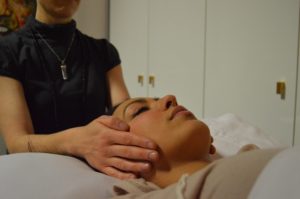 Reiki is often rejected by the more conventionally-minded or scientifically inclined. And yet, the science of its impact cannot be ignored! In 2004, the Journal of Alternative & Complementary Medicine printed the results of a random, blind study in which all subjects receiving Reiki experienced decreased heart rate and diastolic blood pressure in comparison to control and placebo groups. The conclusion of this study indicated that Reiki has effect upon the autonomic nervous system. A 2006 issue of the same publication reviewed a study where participants who received four weeks of Reiki treatments showed “statistically significant increases in mental functioning, memory and behavior problems” in comparison to a control group. The conclusion of this study indicated that Reiki is applicable “for improving behavior and memory problems in patients with mild cognitive impairment or mild Alzheimer’s disease”. In 2005, an issue of Orthopaedic Nursing documented a study on energy healing, including Reiki, and it’s efficacy in strengthening the immune system, decreasing pain, accelerating the healing process, reducing anxiety and promoting overall well-being. These days, it is becoming more common for Reiki practitioners to be on staff at hospitals across North America.
Reiki is often rejected by the more conventionally-minded or scientifically inclined. And yet, the science of its impact cannot be ignored! In 2004, the Journal of Alternative & Complementary Medicine printed the results of a random, blind study in which all subjects receiving Reiki experienced decreased heart rate and diastolic blood pressure in comparison to control and placebo groups. The conclusion of this study indicated that Reiki has effect upon the autonomic nervous system. A 2006 issue of the same publication reviewed a study where participants who received four weeks of Reiki treatments showed “statistically significant increases in mental functioning, memory and behavior problems” in comparison to a control group. The conclusion of this study indicated that Reiki is applicable “for improving behavior and memory problems in patients with mild cognitive impairment or mild Alzheimer’s disease”. In 2005, an issue of Orthopaedic Nursing documented a study on energy healing, including Reiki, and it’s efficacy in strengthening the immune system, decreasing pain, accelerating the healing process, reducing anxiety and promoting overall well-being. These days, it is becoming more common for Reiki practitioners to be on staff at hospitals across North America.
Personally, Reiki has been transformative for me. Learning the practice 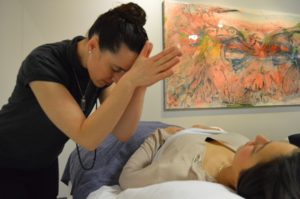 of Reiki has helped me recognize and establish healthy boundaries. Giving and receiving Reiki helps me to maintain an open mind, a calmer mental state, and ongoing feelings of tranquility. Teaching Reiki has marshaled me into a more existential exploration of my purpose and the meaning of life. Perhaps most importantly, I’m learning how to integrate Reiki as a lifestyle – to LIVE Reiki. To spend more and more time in that field of peace and detachment. This gives me great capacity to respond rather than react to life and its challenges.
of Reiki has helped me recognize and establish healthy boundaries. Giving and receiving Reiki helps me to maintain an open mind, a calmer mental state, and ongoing feelings of tranquility. Teaching Reiki has marshaled me into a more existential exploration of my purpose and the meaning of life. Perhaps most importantly, I’m learning how to integrate Reiki as a lifestyle – to LIVE Reiki. To spend more and more time in that field of peace and detachment. This gives me great capacity to respond rather than react to life and its challenges.
Professionally, I’ve observed positive result in response to Reiki applied to broken bones, digestive complaint, constipation, cancer, exhaustion, anxiety, sleep disturbances, acute pain and injury, labor pain and anxiety, infertility, depression, transition to death, emotional instability, and panic attacks.
If you haven’t yet, I invite you to try Reiki. I hope its gift will deepen your arrival in the field, diffusing inner peace into your life’s expression.
